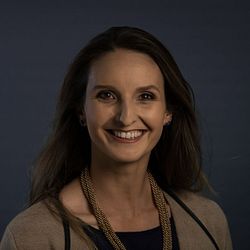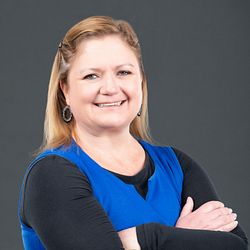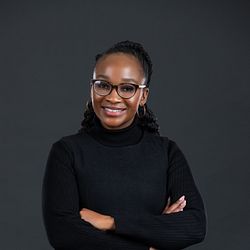
Press release -
Exercise: The prescription of the future
Exercise: The prescription of the future
A panel of doctors and medical experts agree exercise is a ‘vital sign’
5 April 2017 – Johannesburg.
Pulse. Body temperature. Breathing rate. Blood pressure. These four vital signs are key indicators of global health. But, there’s a new vital sign that’s already changing the face of global healthcare. When last did your healthcare practitioner ask you this explosive question before prescribing you medication: How much you do you exercise?
“Patients are accustomed to leaving a doctor’s rooms with prescriptions for drugs, tests and more,” says Dr Craig Nossel, Head of Vitality Wellness. “But, this approach to illness is fast-evolving to include a powerful new vital sign that gives a doctor a multi-dimensional view of a patient’s health and longevity at the deepest level: a patient’s fitness levels.”
Patients need to leave consultations with a fundamentally different sort of prescription that instructs them to, for example, take “moderately intense aerobic exercise for 30 minutes, five times a week”, or “vigorously intense aerobic exercise for 20 minutes, three times a week.”
“We need to exercise daily,” said Prof. Martin Schwellnus, Director of the Institute for Sport, Exercise Medicine and Lifestyle Research at the University of Pretoria. “We are genetically programmed to be physically active every day. If we don’t, we quickly feel the detrimental effects on our overall health and physiology. The benefits in the scientific and medical literature are at this point absolutely undisputed as a vital component of health.”
Chronic diseases of lifestyle – an unnecessary global risk
In South Africa, obesity is ranked as one of the top five risk factors for early death, and years lived with disabilities[i]. Between 1980 and 2008, the prevalence of obesity worldwide doubled. With almost 40% of women and 11% of men classified as obese[ii], South Africa has the highest obesity rate in Sub-Saharan Africa. Research published in the South African Medical Journal[iii] showed that severe obesity increased healthcare expenditure by R4 425 per person, split between inpatient and outpatient care. Smoking has a similar impact on healthcare costs.
Globally, one in four adults is not active enough and more than 80% of the world's adolescent population is insufficiently physically active. Multiple studies have highlighted insufficient physical activity as a key risk factor for non-communicable diseases (NCDs) such as cardiovascular diseases, cancer and diabetes[1].
“NCDs are by far one of the biggest challenges facing global society,” noted Chief Medical Officer of Discovery Health, Dr Maurice Goodman. “South Africa is not faring well in this regard as, over the past 25 years, the incidence of NCDs has increased dramatically, and three-fold when it comes to diabetes in particular.” A recent Stats SA paper has reported that NCDs are now leading cause of mortality in SA over communicable diseases, HIV/Aids and TB.
This week, a British Heart Foundation study reported[2] that levels of sedentary behaviour remain stubbornly high and are likely to be causing as many deaths as smoking. Linked to poor lifestyle choices, from poor nutrition to activity levels, these highly preventable illnesses kill over 30 million people annually.
Exercise: a surprisingly simple antidote to the global tsunami of lifestyle-related illnesses
“It’s staggering that one of the most powerful antidotes to the devastating tsunami of chronic diseases of lifestyle is as astoundingly simple as doctors prescribing and monitoring their patients’ physical activity long-term,” says Dr Nossel. “We need to get doctors to advise their patients to eat better and get moving as well as facilitate their health journey.”
“We have stopped eating and moving correctly,” explains Clinical Endocrinologist at the Life Fourways Hospital and Spokesperson for the Healthy Living Alliance, Dr Sundeep Ruder. “Yet, where there is motion there is life. A river moving actively offers up clear drinking water and pulses with life and energy. When water stagnates it becomes putrid. So too do humans who do not move. What we are now discovering is the science behind how genes and how cells react to movement and how most NCDs are preventable. Exercise improves weight, energy, cognitive function wellbeing scores, and these are all linked to preventing NCDs.”
The benefits of exercise are increasingly impressive. The American Heart Association captures the power of exercise in a recent description of the growing body of epidemiological and clinical evidence that proves exercise, or cardio-respiratory fitness level, is potentially a stronger predictor of mortality than established risk factors (such as smoking, hypertension, high cholesterol, and type two diabetes mellitus etc). And the addition of cardiorespiratory fitness to these risk factors significantly improves their outcomes[3].
One of the panellists speaking from Sandton on 5 April, Dr Elijah Nkosi, a general practitioner in Soweto, Johannesburg is also a 10-times Comrades Marathon (98km) and 12-times Two Oceans Ultra Marathon (56km) finisher. His marathon medals and certificates adorn his office walls. Walking the talk, he is passionate about prescribing exercise to his patients. “I have seen such positive outcomes from prescribing exercise to my patients and tailoring it to their needs. They get very involved in walking and running events and some are even able to come off their medications.”
Dr David Jankelow, Cardiologist and President of the Johannesburg Branch of the SA Heart Foundation says movement is key to healing. “Years ago cardiac patients or heart attack patients were kept immobile for an extended period,” explains Jankelow. “Today we know that getting these patients active is probably the most important thing we can do. We need to show them that they need not fear exercise simply because they have experienced an adverse health event. The same goes for ICU patients.”
“The message I pass on to patients is that getting your sleep, eating and exercise right is critical for health,” explains Dr Nkosi. “If you don’t use your muscles you lose them. So, do at least four days a week of regular exercise from walking for at least 30 minutes to more.” Dr Jankelow added that the prescription for exercise for the general population is 150 minutes of moderate intensity or 75 minutes of high intensity exercise a week. “Recent studies have shown that even people who exercise only on weekends reap the health benefits,” added Dr Jankelow.
Rewarding people at the right moment for healthy behaviour can be the catalyst for ongoing behaviour change
“Our evidence shows that incentivising physical activity leads to habit-formation, where the behaviour continues even when the incentive is removed,” explained Nossel. “We know that personalised and tailored interventions are more effective at changing behaviour than impersonal generic ones.”
Over 1.7 million people are signed up to Discovery’s Vitality programme, an incentive-based wellness programme that has, for over two decades, helped members to increase their levels of physical activity. In Spring of 2015, Vitality got personal, with the introduction of Vitality Active Rewards. This innovative programme makes it easy to choose healthy behaviour.
First, it is easily accessed through the Discovery smartphone app for Apple or Android phones. Then, members who download the app and sign up are given personalised fitness points goals based on their age, prior levels of physical activity and underlying health. The goals are reset weekly for a ‘fresh-start’ effect. The weekly goal can be reached by engaging in physical activity at partner gyms or through parkrun and Team Vitality events. Or, members can engage in self-chosen activities which are recorded with a variety of wearable activity tracking devices (and particularly through Active Rewards with Apple Watch) that measure heart rate, duration of activity or steps. Points allocated depend on the intensity and duration of the workout. Finally, members who reach their weekly targets either alone or with their team of up to four friends, access their rewards on the app and qualify for a free Kauai smoothie or vide e caffè coffee. Reaching monthly targets brings even greater rewards from discounted gym membership to lower air fares for flights.
“Guided by behavioural economics theory, Vitality Active Rewards recognises individual fitness levels and rewards members for reaching personalised targets,” explains Dr Nossel. “These rewards are reset weekly in line with the previous weeks’ achievements to ensure slowly increasing targets towards ever-better health and fitness for members.”
Discovery Vitality’s data shows an increase of 78.5% in activity levels one year after members joined the Vitality Active Rewards programme. And, this trend is particularly apparent among members with chronic diseases such as high blood pressure or diabetes. These members increased their physical activity levels by a substantial 78% after joining Vitality Active Rewards, substantially impacting their health for the better.
If your doctor is healthy, can you be healthier too?
If Vitality Active Rewards has been such a powerful driver for making members healthier, what can it do for doctors? And what could the impact be on their patients? Discovery Vitality data, gathered over its 20-year history, shows that one or two healthy behaviour changes not only trigger further healthy changes, but also have a positive impact on a person’s closest network – whether they are family, friends or colleagues. The idea is that the doctor’s rooms could be another entry point to encourage a healthy lifestyle.
Today’s round table discussion saw the launch of Vitality Active Rewards for Doctors, an incentive programme aimed at encouraging our country’s doctors to be healthier. “We’re making it easier for doctors themselves to get active and healthy,” explains Dr Maurice Goodman, Chief Medical Officer at Discovery Health. “Doctors lead busy and stressful lives and often don’t have the time to take proper care of themselves. We care about our country’s doctors and are going to help them to get healthier. Healthier doctors are more productive, deliver better quality care, and are more effective in prescribing wellness interventions to their patients.”
Modelled on the popular Vitality Active Rewards programme, it will reward doctors for taking care of their own health. “It also incentivizes them to do point-of-care screening for chronic conditions for their patients,” adds Goodman. “The explosion in wearable devices that track heart rate and other variables has made monitoring patient activity levels that much easier for doctors.”
“Healthcare economics and NCDs worldwide will bankrupt every medical system in the world in next five years. The antidote is leadership,” says Prof. Martin Schwellnus. “ Every single doctor has to lead by example and inspire younger and older doctors and patients in that way.” Prof. Schwellnus adds that the greatest benefits of exercise are to be reaped by the least active patient and the sickest patient. “Intervening in their healthcare creates the biggest healthcare savings.”
Dr Nossel added that when business puts its weight and resources behind business strategy that addresses social issues, everyone wins. He added, “Helping people to be healthier has always been fundamental to Discovery’s business.” Nossel explained that this is what helps to create value for all stakeholders, and a principle that forms the foundation of Discovery’s shared-value insurance model. “Keeping people healthy ensures a better quality of life for our members,” explains Nossel. “Our studies show that healthy people have fewer health claims allowing us to more accurately price member risk over time. The resulting savings are shared between Discovery as the insurer pushing further behaviour-change incentives; our members and doctors who enjoy greater health and financial rewards, and ultimately with a healthier, more productive society.
Dr Jankelow puts it well, “We as clinicians have to be much stronger from an advocacy point of view. Exercise may be more important than medicine when it comes to preventing and sustaining health.
ENDS
Supporting research
[1] http://www.who.int/mediacentre/factsheets/fs385/en/
[2] https://www.bhf.org.uk/news-from-the-bhf/news-archive/2017/april/new-report-assesses-impact-of-physical-inactivity-on-uk-heart-health-and-economy
[3] http://circ.ahajournals.org/content/early/2016/11/21/CIR.0000000000000461
[i] Mortality trends and differentials in South Africa from 1997 to 2012: second National Burden of Disease Study. Lancet Global Health 2016; 4(e642–53).
[ii] Shisana O, Labadarios D, Rehle T, et al. South African National Health and Nutrition Examination Survey
(SANHANES-1). Cape Town: HSRC, 2014.
[iii] The effects of obesity, smoking, and excessive alcohol intake on healthcare expenditure in a comprehensive medical scheme; November 2013, Vol. 103, No. 11 SAMJ.
ENDS
For queries or interviews, please contact Taryn Kerr: tarynke@discovery.co.zaor 011 529 2204.
Topics
Categories
Discovery information
About Discovery Limited
Discovery Limited is a South African-founded financial services organisation that operates in the healthcare, life assurance, short-term insurance, savings and investment products and wellness markets. Founded in 1992, Discovery was guided by a clear core purpose – to make people healthier and to enhance and protect their lives. Underpinning this core purpose is the belief that through innovation, Discovery can be a powerful market disruptor.
The company, with headquarters in Johannesburg, South Africa, has expanded its operations globally and currently serves over 5 million clients across South Africa, the United Kingdom, the United States, China, Singapore and Australia. Discovery recently partnered with Generali, a leading insurer in Europe, and has partnered with John Hancock in the US. These new partnerships will bring Discovery’s shared-value business model to protection industries in Europe and the US.
Vitality, Discovery’s wellness programme, is the world’s largest scientific, incentive-based wellness solution for individuals and corporates. The global Vitality membership base now exceeds three million lives in five markets.
Discovery is an authorised financial services provider and trades under the code “DSY” on the Johannesburg Securities Exchange.
Follow us on Twitter @Discovery_SA







